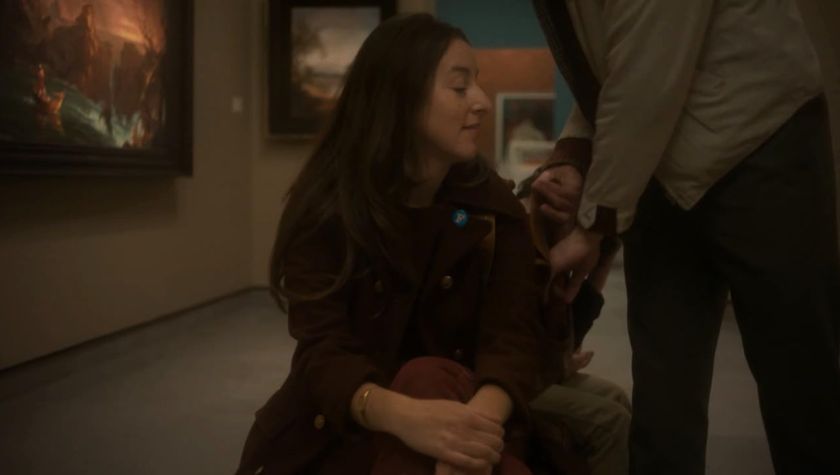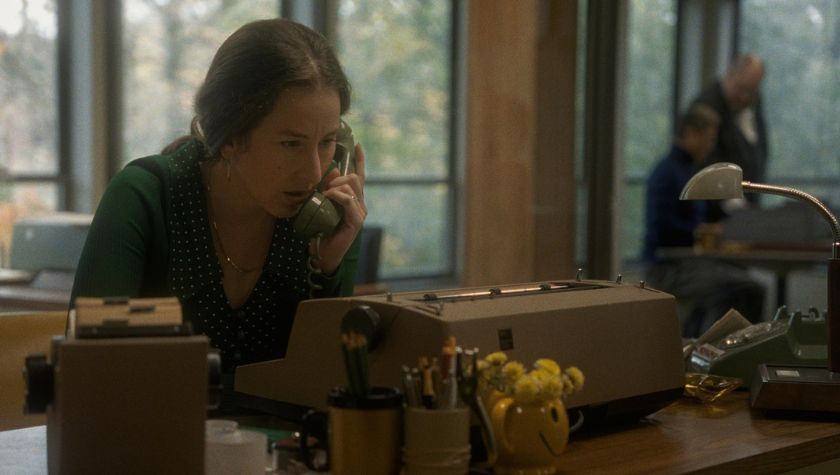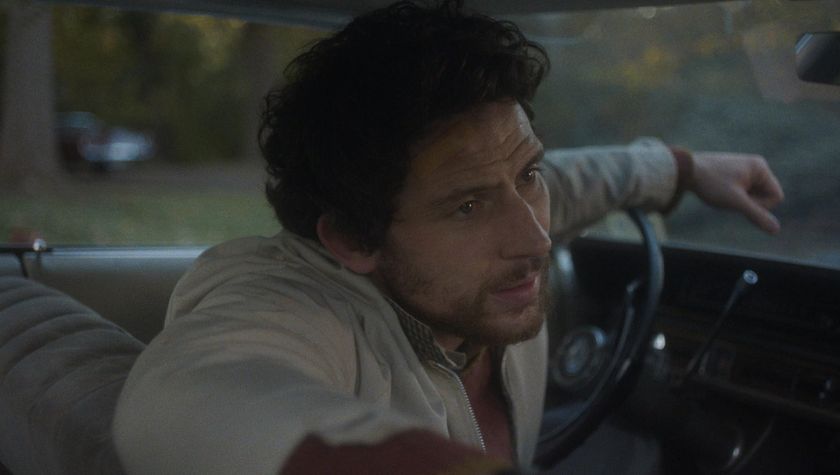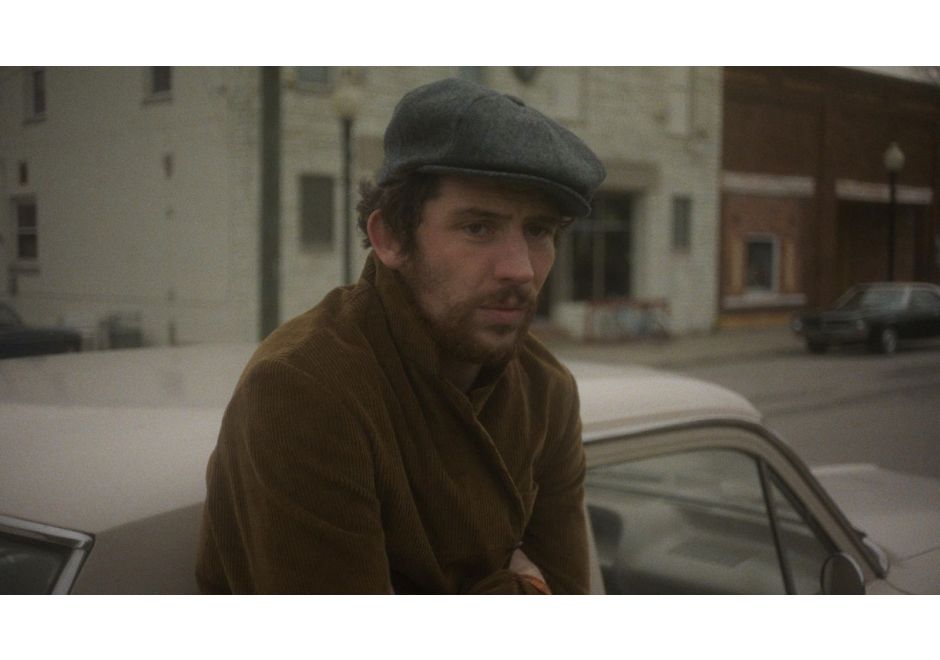Kelly Reichardt makes movies that feel like poetry - economical, resonant, landing on emotional truths through beautiful simplicity. Her films are quiet and reflective, finding power in what's left unsaid as much as what's shown on screen.
The writer/director has made a name for herself as an indie film master with movies like First Cow, Showing Up, Certain Women, and Meek’s Cutoff. Her characters move through worlds that feel instantly familiar. Her newest film, The Mastermind, was inspired by a real 1970s art heist. It follows JB (Josh O’Connor), the restless but charming young man who plans the whole thing. However, the film isn’t so much concerned with the theft. It’s what comes afterward that Reichardt explores here.
We spoke to the writer about her work and what we can learn from deconstructing genre and character.
Editor’s note: The following conversation has been edited for length and clarity.
Final Draft: I'll just start with your approach to what has essentially been called an “anti heist” film. I’d just love to know how you start prepping a story with these expected beats and making it your own.
Kelly Reichardt: Gosh. Well, you know, write, but it's such a long process. I started with a concept. Well, I should say I started with this idea of this art heist, but it got kind of tipped. A thing that pushed me into it.
Because I'd been thinking about an art heist for a long time. There was this article, it was the 50th-year anniversary of these four teenage girls that got caught up in an art heist in Worcester, Massachusetts. And that was fun to think about, and I was like, “Oh, it'd be cool to write about these girls.”
And then I wrote a lot about those girls … it's not a film about the girls, but for a while there was a lot of the girls in there. There was a really fun, very elaborate [sequence], the picking up of the girls to go to the museum. I had so visualized how I wanted to shoot it, but it wasn't really adding anything to the story, and it was kind of distracting, in fact.
So I guess part of writing is, as is all things in filmmaking and editing, cutting stuff out as you go, and building stuff, and taking it down, and building it back up again, and a lot of starting over. And so that happened here.
I knew I wanted to have a film that started with the heist, instead of the heist coming in the place that it normally would, like at the end of the second act or in the second act. And that would open up something unexpected for the character, where the rest of the film would be this kind of aftermath that he would have to navigate, and I would have to navigate as the writer, because there wouldn't be the footsteps of a genre to follow.
And it turns out, of course, that there's a reason that the heist happens at the end of the second act. It becomes very tricky when you shuffle things around like that.
So I was in the weeds for a long time. Coming in the weeds, going out of the weeds and getting lost in my own. The natural thing was to keep, in the third act, to keep feeling like a first act instead of trying to make it a continuation.
And for some reason, now that I found my way, it seems simple. But I spent a really long time trying to figure out - I knew what the ending of the film would be, but how to get there was a long journey.


Final Draft: Do you mean when you are “keeping the third act feeling like the first act” in that early iteration, is it with the rising action? Or what was tripping you up?
Kelly Reichardt: No, I just keep introducing new storylines, new characters.
Letting it unwind and just come undone is a kind of unnatural thing. I think, at least for me, the natural thing is to build things up.
It seems like it would be simpler to undo. Unpacking is easier than packing, but for some reason in writing I found it to be much more difficult to just let things keep devolving, basically.
Final Draft: I think one thing that I love about this movie, and I know you've done it to some degree in your other films too, but I just love how sparse the dialogue is. And when the dialogue is there, it hits so hard. One moment that hit for me was when his friend was putting him on the bus. You have that subtext of, “Here's how you reach me.” So I’d just love to hear you talk a little bit about how you approach dialogue and when to include it and when not to.
Kelly Reichardt: That scene in particular, there was more dialogue there. And often there is more dialogue. And part of, I think, making a film is trying to find where dialogue is unneeded because things are playing out in other ways or you just start to feel like, “Is that needed? Do I need that?”
And fortunately, I work with actors who also will say, Gaby Hoffmann will be like, “I don't think she needs to say that.” And you're like, “All right, I'm always up for taking stuff out.”
But that goodbye was different for a while. And someone I showed it to, that I sometimes get notes from, said, “It's too wet.” And I knew exactly what he meant.
And yeah, the worst is if you have something over-explained or pushed or too on-the-nose, because we don't explain everything to each other all the time or talk about exactly what [we feel]. Mostly people are kind of delusional about how they feel.
It’s not on-the-nose, but sometimes if you leave some space in, some breathing room, something else can creep in. It opens the door a little bit. I think. So, I mean, people say the scripts are sparse, but we take a lot out as we go. Not a good amount.
If you don't need it, you don't need it. And if you do, you do.


Final Draft: How do you approach building character? What's your process as you get started for creating someone like JB?
Kelly Reichardt: Some of it's just instinctual, what you want to do. When I'm working with [writer] Jon Raymond, we spend so much time talking everything out, that I kind of know. But a lot of this was just in my head by myself. So I'm not sure what all my things were.
I'm a visual person. I like to have a collection of visual things: different people in the world that I think that might look like him. For this, it's easy just to go get old Life magazines and look at people’s faces, and then you take traits from different people.
And then some of it is just like … the baggage of this prototype that comes from a million other movies. But it's fun to think of people you've come across in your life that you can pillage from, like you do as a writer. You do that also in film from your life.
And I just, in a practical sense, I like to have a lot of images as I'm going. I like to look at places, try to do as much research and have as many images of where someone would live and the city they're in and stuff like that, just to get texture, and watch a lot of docs from the period. And then you start to pick up little things, keep your note cards, write every day, let things change, not get too married to stuff.
One day I did a session, Jon Raymond came over and was like, he had read a draft of the script, and he said, “Who is this guy?” And I was like, “Wow, Jon’s really being an ass. He's being so aggressive.” And he just kept pushing me to say what the guy wanted.
And it was just such a frustrating afternoon, but it was really helpful. And it's like, he's all these guys - he wants his personal freedom. And then it's like, okay, that you could latch onto personal freedom. Okay, there's a thing.
And the more you can figure out what someone's after, it's easier to figure out how they're going to get to what they want. But you have to understand what it is they want and why they're giving up what they have. Not that it has to all be so reasonable, because people do things for not always reasonable reasons. People do stupid shit all the time. But yeah, I don't know everything, it's a process, and processes are so hard to sum up.


Final Draft: He's such an amazing character. So whatever that process was definitely worked for you. I mean, at one point I was like, “This guy, he's just out all night.”
Kelly Reichardt: Then you plan it all how it's going to be. And then whoever the actor is is doing it in their body and their voice. When I'm writing, I don't really know what it's going to be. Like when Josh is sitting at a table with Alana [Haim] and his kids and his mother and his father. They're going to all have this dynamic that's unpredictable. That brings a lot to it.
Then you're just kind of watching what someone else [does], if it's not going off track. And with Josh, it just didn't because he is just such an intuitive person and really had a grasp of it. So then it's just exciting watching someone take your raw materials and make something out of it.
Final Draft: Is there one thing that you would tell an aspiring screenwriter that they need to learn how to do?
Kelly Reichardt: Well, no, I have no advice because I don't understand the world we're heading into. And, I don't know, what is AI and ChatGPT? It's so hard to have advice, but if I don't look at the world, and I just think in the little cone of … let me think about that.
Read. I think reading's a good idea for a writer. And a lot of people go like, “Oh, I read that.” And they mean they listened to a book. But I think actual reading books is probably a good idea if you're a writer, and that includes screenplay writing.
But also you have to study film. And I think studying film, not the film of your generation now, really understand the formal language of film and where it comes from and how it's built and how it's used. And that can lead up to now.
But I think having a good sense of narrative form, as a written form and as how it works in film, it’s good to have a lot under your belt. And that's kind of the fun part.
The Mastermind is in theaters now.

